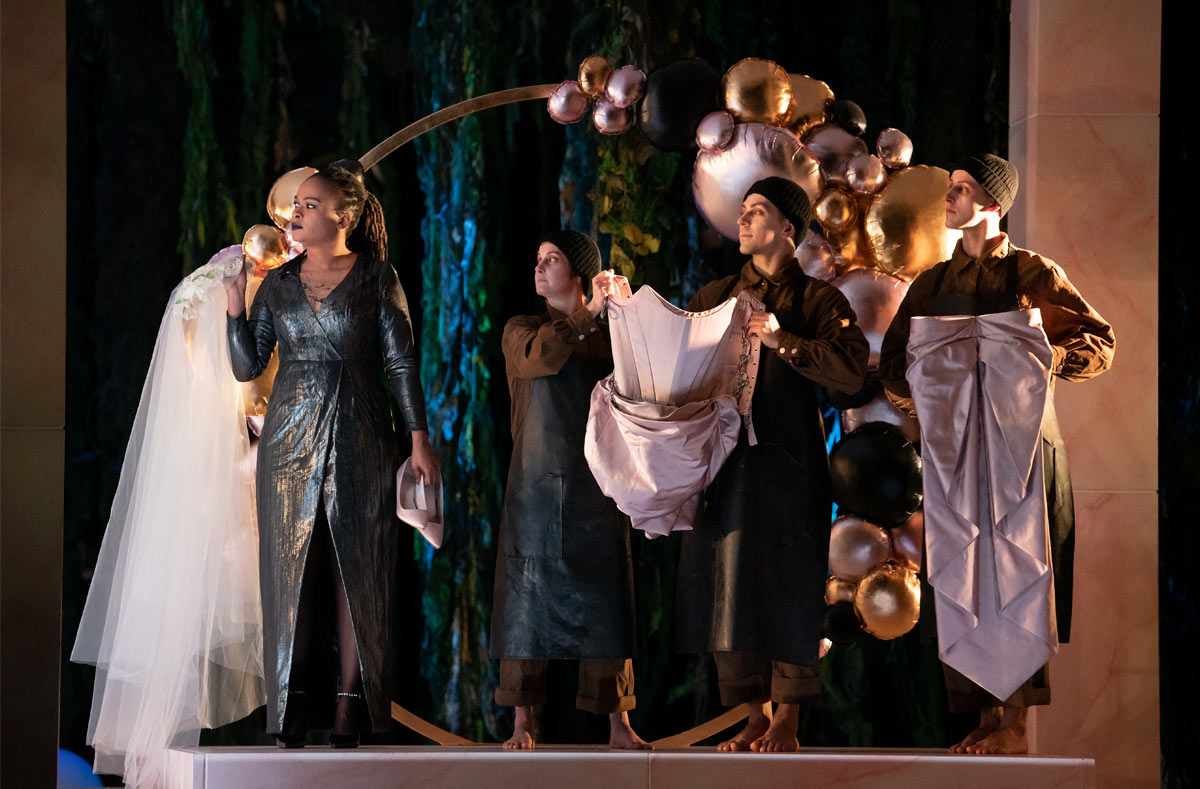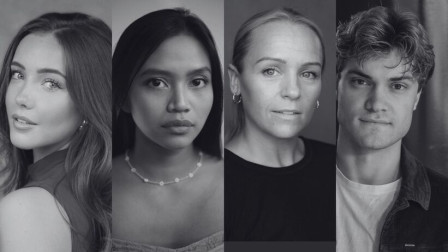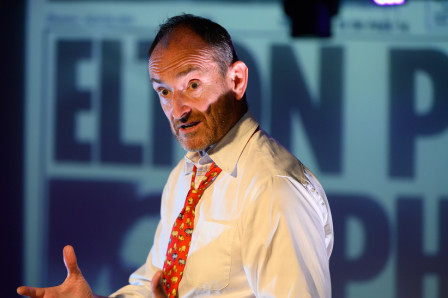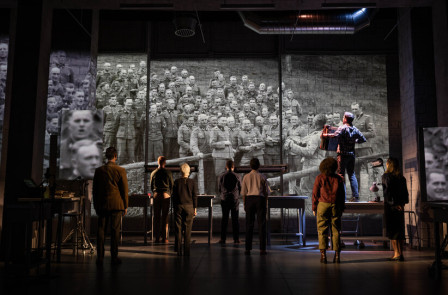Review: RUSALKA at Royal Opera House
A new production of RUSALKA — Antonin Dvorak’s 1901 lyric fairy tale with libretto by Jaroslav Kvapil — opened at Covent Garden this week, and it is most definitely one for the eco-age. Created, directed and largely choreographed by the combined talents of Natalie Abrahami and Ann Yee the tale mixes Czech mysticism with the familiar folkloric story of a disenchanted water nymph who longs for her Prince (variously Ondine, Mélisande and The Little Mermaid elsewhere) and gives-up her voice to assume human form.
 Rusalka at the Royal Opera House - Photo Camilla Greenwell.
Rusalka at the Royal Opera House - Photo Camilla Greenwell.
In a world more than ever obsessed by the lack of balance between nature and mankind, the production taps into that primal conflict and the ever increasing urgency which requires each to understand the other to survive. Chloe Lamford manages to juxtapose a mix’n’match combination of the ultra modern with naturalistic woodland in her set design, which requires some suspension of belief, but on the whole conveys the right tone - especially in the second act wedding party scene where pseud-guests cavort and parade their contempt for the out-of-place waif and embrace the Duchess whose glamorousness and passion for life captures the Prince’s attention in marked contrast to Rusalka’s otherworldly strangeness and silence.
For the third act, Paule Constable has re-lit the set’s overhead aperture (which has served as the lake’s surface for scenes beneath the water) and it suddenly appears as a looming, slime-covered toilet seat for the remainder of the production - evocative of the polluted and degraded depths which exist out of sight beneath.
By way of recognition that Dvorak’s ode to nature holds a very specific eco-positive position in the opera canon, the team at the Royal Opera House has attempted to recycle old materials and re-use props collected over the past year in dressing the set and creating costumes. Even the usually glossy programme - which is populated with artistic imagery of polluted waters - will look unusual to regular Covent Garden attendees, as its creation has been considered through a sustainability lens and for the first time uses 100% recycled paper, vegetable-based inks and water-based sealers in the printing process.
Under the stewardship of Semyon Bychkov the orchestra extracted every last ounce of the almost-Wagnerian romanticism inherent in the piece, whilst on stage, Lithuanian soprano Asmik Grigorian as Rusalka was a capable pair of hands in a role she has already played in a number of houses around the globe. David Butt Philip possessed the sort of technical vocal ability of which most operatic tenors can only dream and yet his jittery onstage presence lacked the grandiose dignity of a Prince who is both entitled and fickle yet ultimately remorseful. Sarah Connolly whose performances in baroque roles always dazzle, seemed a little under-par as Ježibaba the water witch who appeared more of a louche and ambivalent shamen in this production. So it fell to Aleksei Isaev as Rusalka’s father Vodnik to truly take command of the stage. The Russian baritone conveyed power and dominion over not only his watery realm but the entire auditorium on each an every occasion he appeared.
Latest News

 Beatrice Penny-Touré to join West End production of THE PHANTOM OF THE OPERA
6 February 2026 at 13:59
Beatrice Penny-Touré to join West End production of THE PHANTOM OF THE OPERA
6 February 2026 at 13:59

 Initial cast and creative team for ROSIE A NEW MUSICAL West End premiere concert
6 February 2026 at 10:02
Initial cast and creative team for ROSIE A NEW MUSICAL West End premiere concert
6 February 2026 at 10:02

 Review: MONSTERING THE ROCKETMAN at Arcola Theatre
6 February 2026 at 09:01
Review: MONSTERING THE ROCKETMAN at Arcola Theatre
6 February 2026 at 09:01

 HERE THERE ARE BLUEBERRIES at Stratford East - First look images released
5 February 2026 at 15:35
HERE THERE ARE BLUEBERRIES at Stratford East - First look images released
5 February 2026 at 15:35